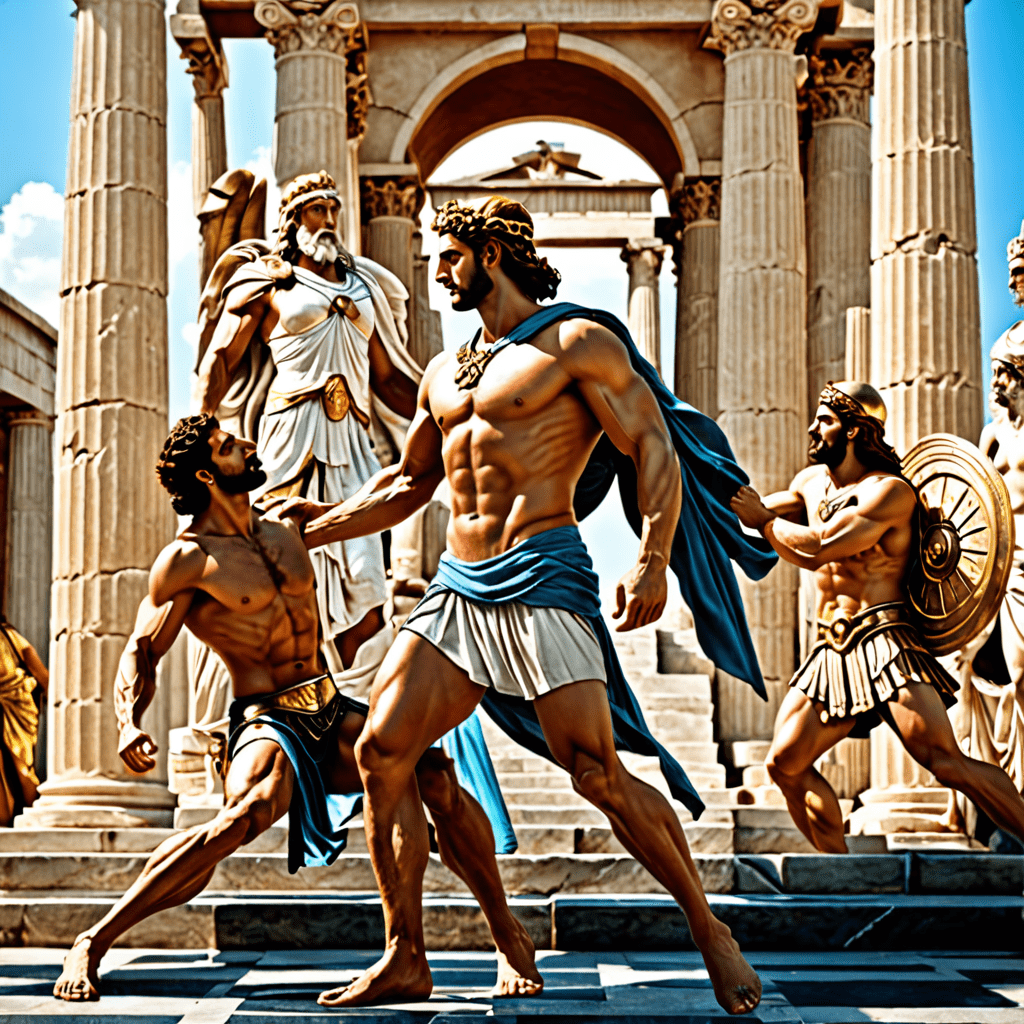Cultural Hero Myths: The Power of Storytelling in History
Introduction to Cultural Hero Myths
Cultural hero myths are narratives that celebrate the extraordinary deeds of individuals who embody the values and aspirations of a society. These myths are significant in various societies as they serve not only as entertainment but also as a means of preserving cultural identity and values across generations. Through storytelling, societies can encapsulate their morals, ethics, and historical experiences, providing a framework for understanding their place in the world.
The Role of Myth in Cultural Identity
Hero myths play a crucial role in the formation of cultural identities by providing relatable figures that embody the ideals of a community. These narratives often reflect the challenges and triumphs of a society, allowing individuals to connect with their heritage. Examples of key cultural hero myths from different regions include:
- Hercules in Greece: A demigod known for his incredible strength and heroic feats, Hercules represents bravery and perseverance.
- King Arthur in Britain: A legendary king whose stories emphasize chivalry, unity, and the quest for justice.
- Anansi in West Africa: A trickster spider who teaches lessons about wit, wisdom, and the importance of storytelling itself.
Elements of Hero Myths
Hero myths share common characteristics that define the hero’s journey. These typically include:
- The Call to Adventure: The hero is summoned to leave their ordinary world.
- Trials and Challenges: The hero faces obstacles that test their character and abilities.
- Ultimate Triumph: The hero overcomes these challenges, often returning transformed and wiser.
The archetype of the hero, as explored by Joseph Campbell in his concept of the monomyth, reveals psychological implications about human experiences, suggesting that these narratives resonate deeply with our collective subconscious and cultural psyche.
Storytelling as a Means of Education and Moral Instruction
Hero myths are not only tales of adventure but also serve as vital educational tools. They impart values and ethics to younger generations, teaching them about courage, sacrifice, and integrity. Case studies of specific myths illustrate this function:
- The tales of Native American heroes: Stories of figures like Manabozho, who teaches respect for nature and the importance of community.
- The story of Robin Hood: A figure who embodies social justice and the fight against oppression, teaching lessons about equity and fairness.
Cultural Hero Myths and Collective Memory
The relationship between hero myths and collective memory is profound. These narratives help shape national identities and offer a sense of continuity through shared history. Hero myths often highlight key moments in a society’s past, influencing how communities remember and interpret their history. They serve as lenses through which people view their cultural heritage and current events.
The Evolution of Hero Myths Over Time
Cultural hero myths are not static; they evolve to reflect changing societal values and norms. Contemporary reinterpretations of traditional hero myths can be seen in modern media:
- Superhero films: Characters like Spider-Man and Black Panther draw on ancient hero themes while addressing modern societal issues.
- Literature: Authors like Neil Gaiman and Madeline Miller reinterpret classic myths, offering fresh perspectives on ancient tales.
The Influence of Hero Myths on Literature and Art
Hero myths have significantly influenced literature and art throughout history. They provide rich material for authors and artists, inspiring some of the most significant works in the world. Notable figures include:
- Homer: His epics, like “The Iliad” and “The Odyssey,” are foundational texts that explore heroism and human experience.
- Shakespeare: Many of his plays reflect hero myths, particularly in the portrayal of tragic heroes.
- Modern filmmakers: Directors like Peter Jackson and Christopher Nolan draw on heroic narratives to craft compelling stories that resonate with contemporary audiences.
Global Perspectives: Comparing Hero Myths Across Cultures
A comparative analysis of hero myths across cultures reveals universal human experiences and aspirations. Despite cultural differences, many hero myths share common themes:
- The struggle against adversity
- The pursuit of knowledge and wisdom
- The importance of community and sacrifice
This comparison highlights not only the diversity of mythologies but also the shared human condition that transcends geographical boundaries.
Critique and Controversy Surrounding Cultural Hero Myths
While hero myths can inspire, they can also present challenges. The idealization of heroes may lead to exclusion or the oversimplification of complex narratives. Contemporary critiques have emerged, urging a re-evaluation of historical figures:
- Christopher Columbus: Once celebrated as a hero, modern perspectives challenge his legacy, highlighting the impact of colonization.
- Thomas Jefferson: His contributions to democracy are scrutinized in light of his personal history with slavery.
Conclusion: The Enduring Power of Storytelling
Cultural hero myths play an enduring role in shaping history and identity. Through the power of storytelling, these narratives resonate with audiences, reflecting the complexities of human experience. As societies continue to evolve, the future of storytelling and hero myths remains vibrant, adapting to new challenges and perspectives while preserving the essential values that connect us all.



